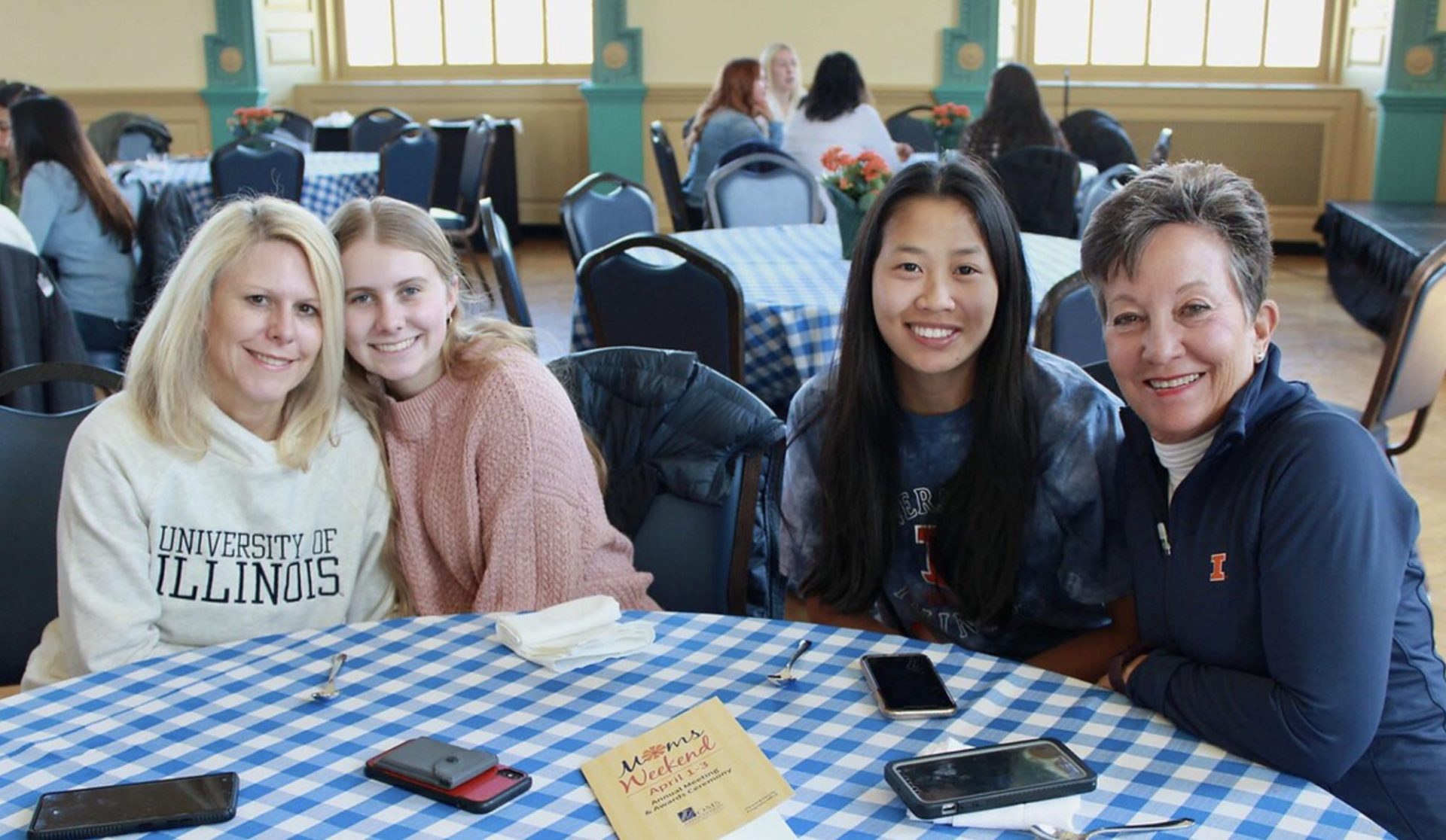The University of Illinois recently celebrated Moms Weekend, a Spring semester weekend full of brunches, flowers, and various “mom”-themed things. With the U of I aiming for a more inclusive campus, why are we still resorting to separate weekends for moms and dads? It’s time to shift the focus to weekends that celebrate a student’s support system.
The history of these weekends started over 100 years ago. In 1922, after a fraternity had floated the idea of inviting their dads to visit for a football weekend during the fall semester, the Illini Dads Association was officially formed as a way for dads to come visit their sons for the game. In 1923, the very next year, the Illini Moms Association was created. Both events were a way for students to introduce their parents to their friends and participate in campus activities. Eventually, male students invited their moms for Moms Weekend, and vice versa.
While it is quite a feat to have the two oldest known university parents organizations in the nation, we believe it is time to modernize the idea of a weekend specific to each parent, creating a more inclusive family weekend.
Looking around the Big Ten, all of the schools in the conference have family weekends as opposed to separate weekends for moms and dads: Iowa, Indiana, Maryland, Michigan, Michigan State, Minnesota, Nebraska, Northwestern, Ohio, Penn State, Purdue, Rutgers, and Wisconsin. Many of these schools that have moved to the family weekend format did so because it encompasses all aspects of family, from parent figures to siblings and more, as the modern era demands a more broad definition of “family.”
For students who have lost a parent, these weekends can be extremely difficult, reminding a student of what they have lost, or bringing other painful moments to the surface. For those who might have a family structure that varies from the “traditional” family system, the gender-specific festivities create an exclusionary environment. By creating a weekend that celebrates families as opposed to a specific parent, students would have less pressure to fit into a specific binary, and may feel less marginalized and excluded. There is the argument that for students with divorced parents, inviting them both to the same weekend could also be a stressful situation, and for this it could be worth keeping the two weekends, one each semester. Believe it or not, there are moms who like football and dads who like gardening and brunch. The weekends don’t have to stick to heteronormative themes.
The U of I has been improving their Diversity, Equity, and Inclusion initiatives to create a more welcoming environment for students who are underrepresented. It would seem that with the traditional structure of the nuclear family changing, this would be a great opportunity to create a more inclusive weekend for students and families who might not look the same as they did in 1923. The fact is, if we want students to feel included, we should be trying to reflect those priorities in all of the events put on by the University and make events as inclusive as possible.
As an editorial board, we know that the U of I loves its traditions and being able to lay claim to having the oldest tradition in the nation is pretty cool. But, clinging to antiquated traditions not only seems anti-progressive, it sends the specific message that the past, and those who value it, are more important than the people who are a part of the U of I in its present and future iterations.
Critiques aside, there’s no doubt that both weekends bring economic benefits to the region. In addition to the University, hotels, restaurants, and businesses are impacted by the amount of tourism entering the area. It makes sense for the U of I to continue to host a family-centered weekend each semester. A rebrand would be fairly straightforward and an easy way to demonstrate that the U of I’s commitment to inclusivity is more than empty words.
The Editorial Board is Jessica Hammie, Louise Knight-Gibson, Julie McClure, Patrick Singer, and Mara Thacker.








